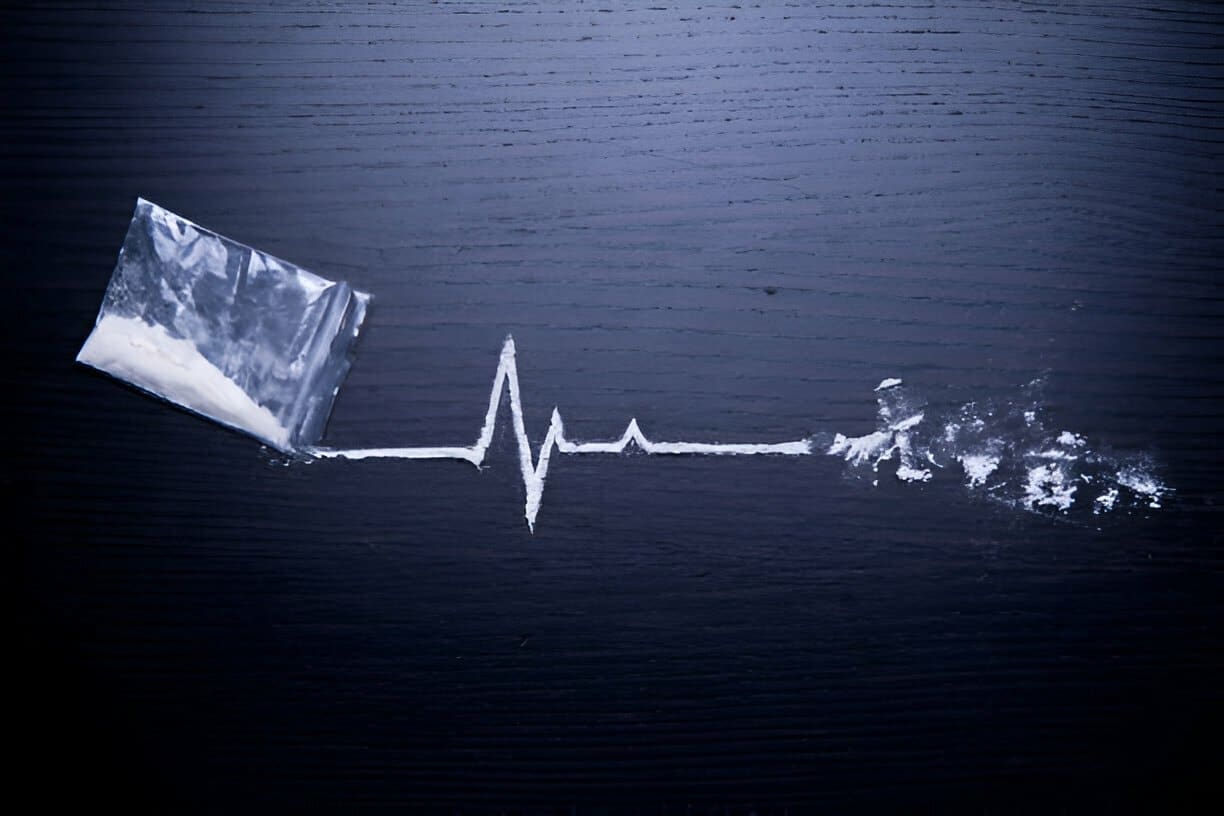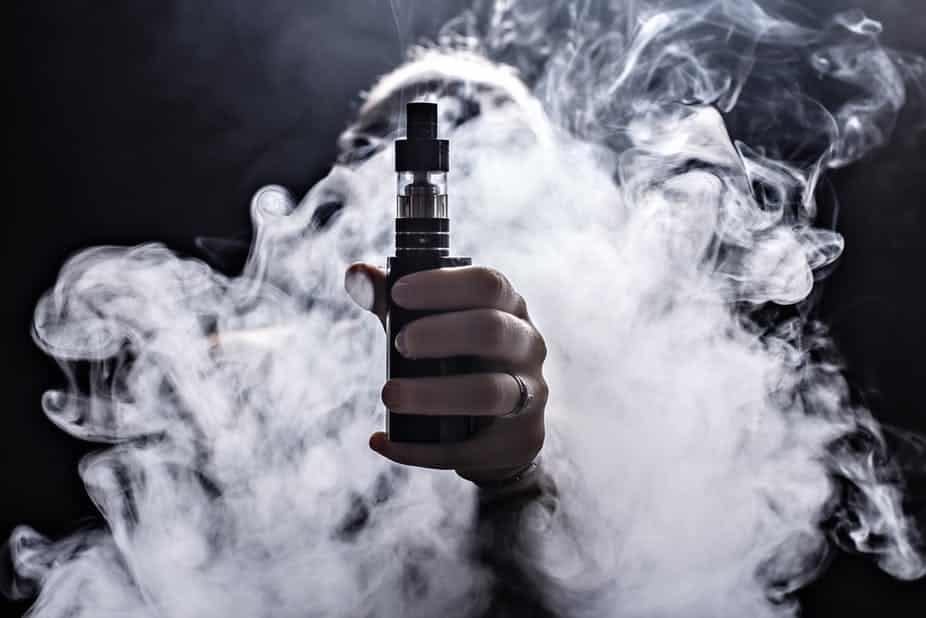Alprazolam is a potent drug commonly used to treat anxiety, panic attacks, insomnia, and other substance-related issues. Alprazolam has hypnotic properties when used in considerable amounts. It affects the central nervous system’s function by altering brain activity and slowing the body’s normal activities, including breathing and heart rate.

Even if you take alprazolam precisely as recommended, it can cause physical dependence with many adverse effects and severe withdrawal symptoms. It is not advisable to discontinue taking the medication abruptly. Instead, gradually reduce your dosage under expert supervision.
If your loved one needs support dealing with an Alcohol Addiction, contact us today on 0800 999 1083. We can help you by recommending treatment options.
Alprazolam is categorised as a Class C substance in the United Kingdom, which means it is among the least toxic pharmaceuticals. However, the only way to legally purchase the drug is to obtain a prescription from a medical practitioner.
Alprax, Alprocontin, Alzam, Alzolam, Anzilum, Apo-Alpraz, Helex, Kalma, Mylan-Alprazolam, Niravam, Novo-Alprazol, Nu-Alpraz, Pacyl, Restyl, Tranax, Trika, Xycalm, Xanax, Xanor, Zolam, and Zopax are all brand names for alprazolam. Alprazolam is also known as xannies, zanies, bars, ladders, xanbars, xans, z-bars, footballs, planks, poles, blues, and blue footballs on the street.
Alprazolam is most typically used for the short-term treatment of anxiety disorders, panic attacks, and chemotherapy-induced nausea. It’s also used to treat tinnitus, depression, dysautonomia, and borderline personality disorder.
Alprazolam addiction, like any other addiction, is the abuse and misuse of a short-acting benzodiazepine that is commonly given as a tranquilliser. Alprazolam is a fast-acting drug that takes effect in less than sixty minutes and lasts eleven hours. Xanax, the commercial name for alprazolam, inhibits brain function by raising the amount of the GABA brain chemical and improving the ability of its receptors.
Alprazolam isn’t always a terrible thing. Alprazolam is easy to abuse and become addicted to because it has a great reputation, is highly effective, and can be managed at the user’s discretion. When used as instructed, it can help with anxiety and insomnia.

When Alprazolam is misused, it is quite easy to develop an addiction. Genetic susceptibility, brain chemistry, psychological variables, and environmental factors are the four possible causes identified by science.
Addiction is, at its essence, the same. The drug may change, but the underlying, unresolved issues that have formed and materialised as a substance misuse problem are at the heart of addiction. This can be seen in the form of Alprazolam addiction, for example. While we cannot be sure of the one true cause of Alprazolam addiction, we can say that hereditary and environmental variables make some people more likely to develop an addiction than others.
According to studies, benzodiazepine addiction runs in families. Something in the family’s genetic composition may predispose some family members to abuse Alprazolam for the euphoric sensations it generates.
According to scientists, brain chemistry cannot be ruled out as a probable explanation. GABA is a naturally calming substance affecting the mind and the body. It’s thought that after taking medicine, some people’s levels of naturally occurring GABA never return to normal. Once a single Alprazolam prescription is finished, another prescription drug is required to avoid feeling worse again.
There is a psychological component to Alprazolam addiction and abuse. According to scientists, brain chemistry cannot be ruled out as a probable explanation. Psychological dependence can develop faster than physical dependence in some people. This could make it easier to start a cycle of abuse or addiction.
Environmental factors have been recognised in the addiction recovery community to contribute to the overuse and abuse of various substances. Alprazolam isn’t the only drug that does this. People who live in insecure environments may be more susceptible to the euphoric effects of Alprazolam.
Xanax is a benzodiazepine that works quickly. That is, it causes a significant alteration in the brain in a short amount of time. As a result, it is one of the most addictive benzodiazepine drugs now available. People who take 4 mg/day for more than 12 weeks are at an increased risk of addiction, but anyone who abuses the drug is in danger.
Snorting, crushing, or modifying the form of alprazolam in any manner can be fatal. Signs of alprazolam abuse include using alprazolam without a prescription, neglecting the proper and prescribed methods of usage, or continuing to take it even after experiencing the adverse effects of its use. Abdominal cramps or soreness, depression, poor thinking and memory, and slurred speech are some symptoms of alprazolam usage and addiction.
Sleepiness and relaxation are common side effects of alprazolam, which are essential for treating anxiety and panic disorders. You may have various symptoms and effects if you abuse or get addicted to alprazolam, including seeming drowsy, jittery feelings when the medication wears off, frequent headaches, eyesight problems, and dizziness. Driving or operating heavy machinery while taking medicine is not allowed because it might be extremely risky.
Alprazolam relaxes muscles, lowers anxiety, and induces sleep when taken as directed by your doctor. The consequences of taking higher quantities of the medication are comparable to those of alcohol consumption. Your inhibitions are lessened, and your judgement is affected when you enter a relaxed condition. You may be taking the drug to get a relaxing “high” or a feeling of pleasure, but it only takes 60 to 90 minutes for the drug to take full impact.
Alprazolam can therefore significantly impact your health very quickly, causing a lengthy number of side effects such as confusion, amnesia, weakness, exhaustion, breathing problems, dizziness, lack of coordination, impaired judgement, seizures, skin rashes, unexpected mood swings, and depression.
If you’ve been using alprazolam for a long time and in large enough doses to establish dependence, discontinuing it might cause various unpleasant and harmful withdrawal symptoms.
People who have acquired a physical dependence on alprazolam and are gradually weaning themselves off of it may experience some or all of the following symptoms:

You should be gently weaned off the medicine, and a doctor should monitor any withdrawal symptoms.
Again, each case of alprazolam withdrawal is unique. However, the following is an approximate timeframe for withdrawal:
Days 1-2 (early stage): withdrawal symptoms can start as soon as six hours after the last dose, with lethargy, irritable moods, restlessness, sleeplessness, and panic attacks among the first to appear.
Days 3–7 (acute): previous symptoms worsen, and a slew of new ones emerge, including nausea, dysphoria, diarrhoea, headaches, hypertension, anxiety, confusion, muscle spasms, hypersensitivity, perspiration, tremors, and weight fluctuations.
Day 8 and beyond (late stage): the symptoms mentioned above usually fade with time, while anxiety, depression, suicidal ideation, poor sleep, and severe cravings may last two to six weeks longer (and longer in the case of protracted withdrawal syndrome).
Abuse and addiction to alprazolam can have both physical and emotional consequences. Physically, alprazolam might cause problems with breathing, especially if you have previous trouble breathing or have a lung disease. Tremors or seizures are common side effects that make working, driving, or participating in certain activities challenging. Furthermore, Alprazolam usage results in abnormal risk-taking behaviour, leading to serious injury or death.
The emotional consequences of alprazolam abuse can have a long-term impact on your life. Decreased cognitive functions, depression, and aggravation of pre-existing depression are examples. They can also trigger phobias, hallucinations, nightmares, and psychosis. Furthermore, alprazolam might make it challenging to engage with loved ones, as relatives and friends are hesitant to get too near you while you’re inebriated.
Common side effects include dizziness, headaches, fatigue, insomnia, changes in sexual desire or inability to perform sexually, dry mouth, difficulties concentrating, constipation, weight changes, increased salivation, difficulty urinating, seizures, skin rashes, memory issues, depression, shortness of breath, and unexpected mood changes.
Alprazolam is known to interact dangerously with several other medications, including CYP3A4 inhibitors (such as cimetidine, erythromycin, norfluoxetine, fluvoxamine, itraconazole, ketoconazole, nefazodone, propoxyphene, and ritonavir), alcohol, kava, St John’s wort and certain oral contraceptives.
Alprazolam, like other benzodiazepines, operates on the GABA receptor in the brain in a similar way to a variety of different medications. As a result, taking alprazolam might cause a condition known as cross-tolerance, in which the person develops a tolerance to other drugs that operate on GABA receptors. Benzodiazepines, alcohol, nonbenzodiazepine medications, barbiturates, and corticosteroids have all been found to have cross-tolerance.

When people abuse benzodiazepines for an extended period, the brain neglects how to function correctly without them. Alprazolam gives you complete control over your emotions, thoughts, memory, cognition, and even motor coordination. Benzodiazepines all increase the production of GABA neurotransmitters, which are responsible for relaxing nerve impulses that cause emotional expressions such as nervousness and panic.
Individuals who begin using Alprazolam in higher dosages are more likely to get addicted sooner, although even little doses can lead to dependency in a month or less.
Xanax can also cause erratic mood changes, leading to violent, aggressive, or hostile conduct.
When users experience a rush of hunger, Alprazolam might cause appetite to diminish, leading to weight loss or binge eating episodes. While the effects of Alprazolam on neurotransmitters give the impression of excitation, the medicines actually make people sleepy. As a result, tiredness is relatively prevalent and can lead to weight gain. Users may become incredibly forgetful, which will be noticed by others. It can come to the point where people miss work deadlines and forget about family occasions they are supposed to attend.
Alprazolam is more likely than many other substances to be involved in dual diagnosis instances (substance abuse disorders alongside other mental illnesses) due to its use to treat specific mental conditions. In such cases of co-occurring disorders, treatment is inevitably more complicated, and specialised care is usually required.
Alprazolam abuse is on the rise among teenagers due to its relative accessibility and price and the simplicity with which it may be bought on the dark web or the streets. If you suspect a teenager or young person close to you is misusing alprazolam, seek quick help from an addiction specialist.
Alprazolam is the most often prescribed and abused benzodiazepine. Abuse and addiction to alprazolam have consequences beyond the short- and long-term symptoms that can arise. The actual consequences of this medication can be observed in how it affects your life, relationships, and other aspects of your social life. Alprazolam might have a negative impact on your social life, causing you to lose touch with friends and family.
You may eventually find yourself spending more and more time with other drug addicts simply because they have more in common with you at the time. Furthermore, misusing alprazolam might make you paranoid about your relationships, making you believe that your friends and loved ones are conspiring against you. It may also cost you your work or career, as the symptoms you’re experiencing may prevent you from performing at your best.
Regardless of who in the family is abusing the medication, alprazolam addiction may be devastating to a family. If you suspect a family member is addicted to or abusing alprazolam, don’t confront them immediately. Instead, talk to an addiction professional about your concerns and get guidance on how to proceed.
We appreciate that the next step after recognising the issue is challenging. It’s not easy to decide to seek help. The best action you can do for Alprazolam addiction, whether it is you or a loved one, is to contact a professional who can assist you in your recovery. Compare Rehab UK offers Alprazolam detox and rehab programmes, all of which are supervised and guided by medically certified professionals who have personal experience with addiction. When you’re ready, we’ll be here to help you get to the next step.
Fortunately, as the number of people addicted to alprazolam has increased, so has the capacity and capability of treatment institutions across the UK. Addiction to alprazolam can currently be treated at a high level.
The presentation of a coherent recovery plan explaining the phases of treatment and what to expect from withdrawal and recovery is critical to treatment. Taking different aspects of treatment one at a time is significantly less likely to result in long-term benefits. A comprehensive treatment strategy is advised to address the individual as a whole and help them along the path to recovery.
Alprazolam detoxification (or detox) is the process of getting rid of the drug from your body. Assisted medical detox is the most comfortable and safer method to get rid of the toxins in the body. Detox centres, inpatient or residential treatment facilities, and outpatient detox programmes may be included in this procedure. At such facilities, qualified healthcare specialists can treat physical and psychological withdrawal symptoms and provide 24/7 medical monitoring and assistance to help you avoid significant consequences.
Longer-acting benzodiazepines or eliminate symptoms before gradually weaning you off them. Tapering is a standard way of alprazolam detoxification, which entails gradually lowering your dosage. Slower-acting alternative medications or the tapering approach can also be employed if you opt to undertake alprazolam detoxification as an outpatient, and you’ll be able to continue your normal activities during treatment.
During detox, healthcare providers must keep a close eye on you as you taper off alprazolam. This is to avoid more acute alprazolam withdrawal symptoms (due to quick dose reduction) during the procedure. Furthermore, due to its prolonged elimination half-life, alprazolam detox may take longer for older people.
When withdrawing from alprazolam, the detox procedure is designed to increase your safety and comfort. A lengthy taper, in which the medication is consistently provided in decreasing dosages over time, is the safest detoxification method. You may be switched to longer-acting benzo first, then weaned off, depending on your level of use and whether you’ve gone through withdrawal before.
This allows for a stabilisation period by establishing a more stable benzodiazepine level in your body, from which you may easily withdraw. This may also make it easier to manage your symptoms. Before starting a tapering routine, you may be switched to Phenobarbital (a long-acting barbiturate). This means that once you’ve reached a therapeutic symptom-relieving dose, the drug will be gradually lowered by how your withdrawal symptoms manifest. More time between dose reductions may result in a less unpleasant detox. However, the process may take longer.
Symptoms of alprazolam withdrawal and detox might fluctuate unpredictably, making the process even more irritating and difficult to manage. Choosing a professionally supervised detox ensures that your symptoms are closely monitored and that you receive the therapies you require at the appropriate time.

One of the most crucial decisions in rehabilitation is whether or not to live in a residential facility.
When you enrol in an inpatient programme, you will live in a residential facility for the duration of your treatment. This can continue anywhere from 30 and 90 days, with some cases lasting much longer. This entails leaving your home and daily life behind, yet it offers various benefits in the treatment of addiction.
An inpatient treatment programme is substantially more focused than other programmes because you reside in the centre and are completely separated from alprazolam. Your rehabilitation procedure becomes your life’s central focus. Your detox will be closely monitored and encouraged, and you will have regular therapy sessions with a therapist.
This rigorous approach allows you to get greater control over your addiction. However, not everyone can withdraw from their lives, leaving behind their family (or other social), work, or school obligations. In this instance, an outpatient treatment programme is the best option to consider.
Unlike its inpatient counterpart, an outpatient programme allows you to live outside the rehabilitation centre. You will go to the centre for therapy regularly during your programme, but you will return home and be under your own supervision outside of that.
You’ll need to go through detox first because most outpatient programmes don’t start until you’ve been sober for a while. The most crucial factor in deciding whether an outpatient programme is right for you is whether you believe your rehabilitation will be more successful under your personal monitoring or the constant supervision of an inpatient programme.
Outpatient treatment for alprazolam addiction is available through both the NHS and private facilities for addicts who cannot afford inpatient treatment. Some alprazolam addicts may choose or be referred to residential rehabilitation (rehab), which includes detoxification and therapy and additional treatment options. However, this may be more troublesome than residential rehab because it does not remove the patient from their substance misuse context.
Only psychotherapy can reveal and address the underlying psychological roots of addiction; hence it is at the centre of all addiction treatment. In treatment, a wide range of therapy approaches and formats are available in both one-on-one and group settings.
Alprazolam addiction requires a comprehensive addiction treatment programme that includes rehab and therapy. If you’re addicted to alprazolam, quitting can be difficult, especially if you’re also addicted to cocaine, opiates or opioids, alcohol, or marijuana. A medically assisted detox at a rehab clinic is usually the initial step in treatment, following which you can move on to the main stage of treatment.
Most rehab clinics will employ therapy to treat alprazolam usage and addiction. Cognitive-behavioural therapy (CBT), motivational enhancement treatment, group therapy, and family and relationship therapy are all excellent options for alprazolam treatment. Behavioural therapy might help you shift your perspective on your addiction and start a new path to recovery.
Motivational enhancement treatment is a type of treatment that seeks to boost your motivation to complete rehab and quit using drugs. Rather than following a step-by-step recovery process, it aids you in establishing a system of strong, internal drive that propels you toward the kind of change you want in your life.
The effectiveness of motivational enhancement therapy varies depending on the type of painkiller used. Nonetheless, it has been discovered to assist several people in maintaining their motivation and staying in treatment for numerous addictions.
Cognitive behavioural therapy (CBT) is a treatment that focuses on analysing your thought and behaviour patterns toto help you gain self-control. This allows you to spot cravings early on and recognise patterns of behaviour or situations where you might be placing yourself at risk of using.
The living skills you develop during cognitive behavioural therapy, according to studies, stay with you long after the session is complete. Because it’s all about your habits, the treatment is tailored to your specific needs and co-created in numerous ways by you and the therapist. As a result, cognitive behavioural therapy can be both liberating and gratifying.
Don’t go through the process of recovery alone. Treatment providers can answer your questions. Get in touch with one today.
Call 0800 999 1083 today!
Support groups for drug addiction, anxiety, and panic disorders may be beneficial if you’re struggling with alprazolam addiction. Support groups allow you to recover from drug misuse and sustain sobriety while connecting with others who have had similar experiences. Narcotics Anonymous (NA) and Alcoholics Anonymous (AA) are two popular groups you might want to join.
While you’re sober, you’ll be able to focus on and enhance your social skills and gain the confidence to engage with others. It also offers you a group of peers who understand what you’re going through and can assist you in finding a positive approach to deal with your addiction.
Family therapy can be an essential part of rehabilitation because your family might be severely exposed to and affected by your addiction, as they struggle with feelings of humiliation, disappointment, despair, rage, and neglect. Family therapy’s primary purpose is to assist your loved ones in developing tools to strengthen their relationships with you and between them.

To help family members connect and achieve positive results, therapists use structured or strategic treatment, behavioural family therapy, and multi-dimensional family therapy. The major purpose of family therapy is to assist family members (particularly children and teenagers) feel protected from the impacts of addiction by creating successful interactions.
No matter how long you’ve been a prisoner of your alprazolam addiction or how serious it is, you may regain control by seeking professional help. Consult your doctor or one of our addiction specialist. Call 0800 999 1083 today, for confidential help and to discuss treatment options. Begin the process of reclaiming the healthy, happy life you deserve.

BACP accredited psychotherapist with 16 years experience working in mental health specialising in psychodynamic person-centred therapies treating those with a range of mental health disorders including anxiety, depression, OCD and Addiction.

Fill in your details and we’ll send you a message via SMS.

No matter where you live, there are drug and alcohol rehab options for you to discover. Treatment providers are waiting to answer your questions. Get started today.

Ever felt that gnawing ache or burning sensation in your gut after a night of drinks? You’re not alone. Stomach pain after drinking is a common complaint, and there are a few reasons why it might happen. Let’s delve into the science behind the discomfort and explore ways to soothe your stomach. The Irritating Truth: … Continued

Cocaine, a stimulant known for its short-lived burst of energy and euphoria, hides a dark side. Behind the initial high lies a dangerous potential for overdose, with severe health consequences and even death. This article delves into the world of cocaine overdose, equipping you with the knowledge to recognize the signs, understand the dangers, and … Continued

Adult smoking habits in the UK refer to how often and in what ways people aged 18 and above use tobacco. This includes everything from smoking cigarettes every day to occasionally lighting up, as well as using other tobacco products. Understanding these habits is important for several reasons: Public Health: Smoking causes many diseases that … Continued

Addiction in the UK is a complex issue that is connected to various aspects of society such as healthcare and law enforcement. It affects people from all backgrounds and has negative impacts on families, communities, and the entire nation. Understanding addiction involves not only looking at the uncontrollable use of substances and repetitive behaviors but … Continued

Don’t go through the process of recovery alone. Treatment providers can answer your questions. Get in touch with one today.
Call 0800 999 1083 today!








